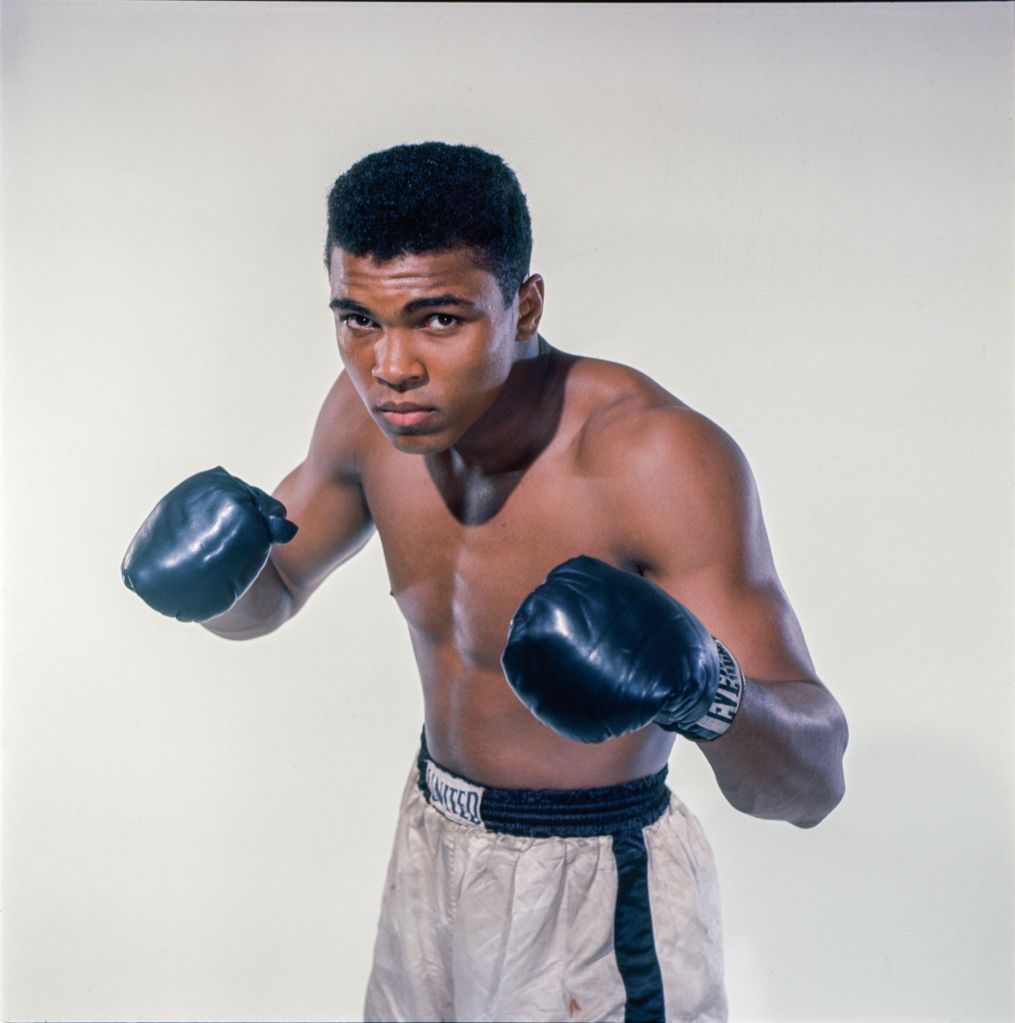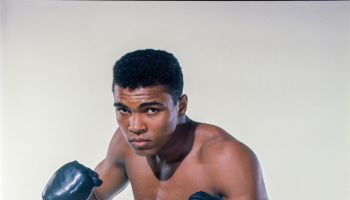
Source: The Stanley Weston Archive / Getty
Arguably boxing’s most celebrated athlete, heavyweight champion Muhammad Ali was also known for his public stance against the Vietnam War and his longtime battle with Parkinson’s disease.
Born Cassius Clay in Louisville, Kentucky, in 1942, Muhammad Ali became an Olympic gold medalist in 1960 and the world heavyweight boxing champion in 1964. Following his suspension for refusing military service, Ali reclaimed the heavyweight title two more times during the 1970s, winning famed bouts against Joe Frazier and George Foreman along the way. Diagnosed with Parkinson’s disease in 1984, Ali devoted much of his time to philanthropy, earning the Presidential Medal of Freedom in 2005. He died on June 3, 2016, in Phoenix, Arizona.
Boxer, philanthropist and social activist Muhammad Ali was born Cassius Marcellus Clay Jr. on January 17, 1942, in Louisville, Kentucky. Ali showed at an early age that he wasn’t afraid of any bout—inside or outside of the ring. Growing up in the segregated South, he experienced racial prejudice and discrimination firsthand.
At the age of 12, Ali discovered his talent for boxing through an odd twist of fate. His bike was stolen, and Ali told a police officer, Joe Martin, that he wanted to beat up the thief. “Well, you better learn how to fight before you start challenging people,” Martin reportedly told him at the time. In addition to being a police officer, Martin also trained young boxers at a local gym.
Ali started working with Martin to learn how to spar, and soon began his boxing career. In his first amateur bout in 1954, he won the fight by split decision. Ali went on to win the 1956 Golden Gloves tournament for novices in the light heavyweight class. Three years later, he won the National Golden Gloves Tournament of Champions, as well as the Amateur Athletic Union’s national title for the light heavyweight division.
After his Olympic victory, Ali was heralded as an American hero. He soon turned professional with the backing of the Louisville Sponsoring Group, and continued overwhelming all opponents in the ring. Ali took out British heavyweight champion Henry Cooper in 1963, and then knocked out Sonny Liston in 1964 to become the heavyweight champion of the world.
Often referring to himself as “the greatest,” Ali was not afraid to sing his own praises. He was known for boasting about his skills before a fight and for his colorful descriptions and phrases. In one of his more famously quoted descriptions, Ali told reporters that he could “float like a butterfly, sting like a bee” in the boxing ring.
Ali later started a different kind of fight with his outspoken views against the Vietnam War. Drafted into the military in April 1967, he refused to serve on the grounds that he was a practicing Muslim minister with religious beliefs that prevented him from fighting. He was arrested for committing a felony and almost immediately stripped of his world title and boxing license.
The U.S. Department of Justice pursued a legal case against Ali, denying his claim for conscientious objector status. He was found guilty of violating Selective Service laws and sentenced to five years in prison in June 1967, but remained free while appealing his conviction. Unable to compete professionally in the meantime, Ali missed more than three prime years of his athletic career. The U.S. Supreme Court eventually overturned the conviction in June 1971.



















